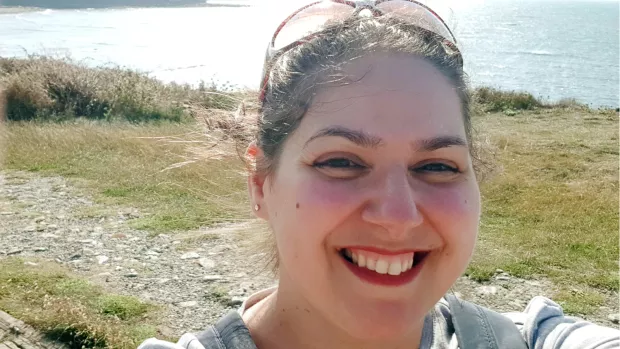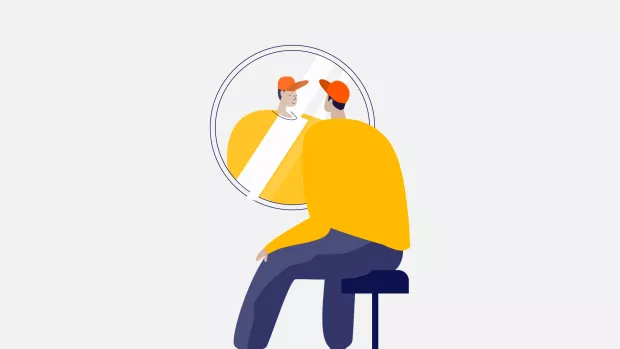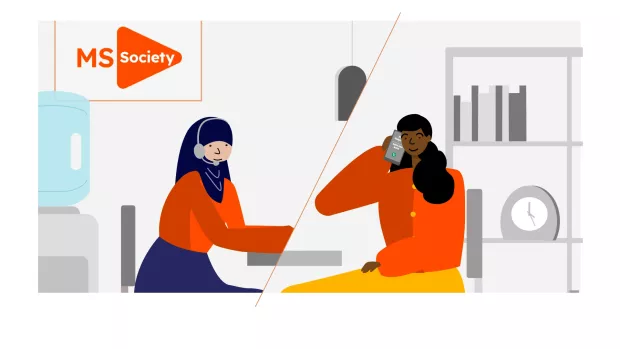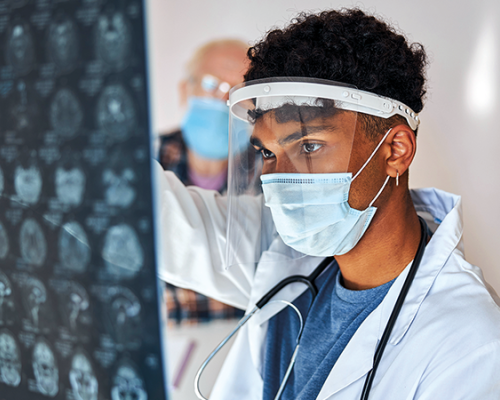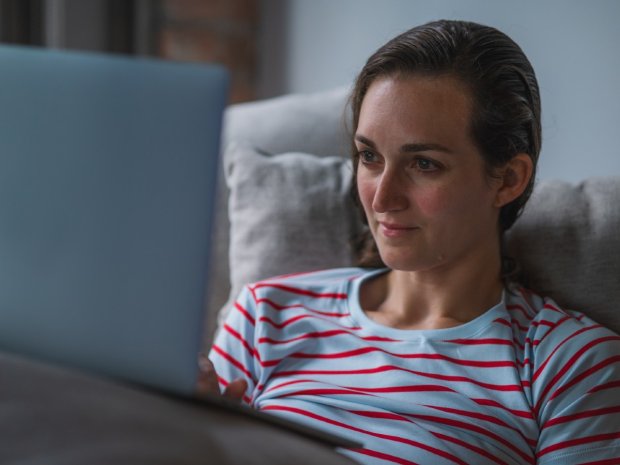
The MS Society’s wellbeing sessions showed me I’m not alone
Lorraine was diagnosed with MS during the first lockdown in 2020. She tells us about learning to talk about MS and how our wellbeing services have helped.
I got up one morning at the start of 2020 and just didn’t feel right at all. I was stumbling and it felt like my legs didn't belong to me.
I went downstairs and, as I live in Scotland, phoned 111 and they told me to get up to A&E. The doctor thought it was weakness due to the nervous system not working properly - so referred me to the neurologist and they agreed.
That was around the middle of February. Towards the end of April I was having problems with my eyes. My vision kept getting worse but because of lockdown I couldn’t see an optician. I finally got an appointment in August and they immediately knew that something wasn’t right.
I was referred to ophthalmology who thought it was optic neuritis and organised an MRI scan. That came back showing lesions which they said on its own didn’t mean I had MS.
Typically, you need two episodes of symptoms to be diagnosed by a neurologist and my first had initially been thought of as functional weakness. But a few days later the neurology department asked me to come in. That’s when I was diagnosed. It wasn’t functional weakness – it was MS.
Starting to share
I find it easy to talk about factual things, but I’ve found it difficult to talk about how something has affected me emotionally.
Dealing with emotions has been a big thing for me. I’ve learned it’s OK to be emotional whereas before I ignored my emotions.
I think bottling things up has made my MS symptoms worse. Invisible symptoms, like altered sensations like in my legs, are the hardest to communicate.
It’s my MS and I choose how much I share. I now understand that if I bottle everything up then people will think I'm fine.
If people don't know how my MS can affect me then I can't expect them to try to understand or react how I might want them to. I might tell one group of people just the basics and then another more detail. Their responses will be different as I've communicated different levels of detail and that's OK.
I’ve learned to talk to myself how I would to a friend and am being kinder. I’ll rest when I need to rest and accept that some days will be better than others.
Finding peer support
I found out about the MS Society’s online Wellbeing sessions and joined a one in January.
Being so newly diagnosed I dreaded speaking to people but hearing from others, in their words, made me feel that I wasn’t alone. I was able to share and I didn’t have to hold back.
I went into it with an open mind wanting to find out more from others about their experiences. It’s people with MS, all like-minded, in the same place having a chat.
The sessions were informal and led by what people wanted to talk about, so there’s never any pressure to go into any detail you weren’t comfortable with sharing.
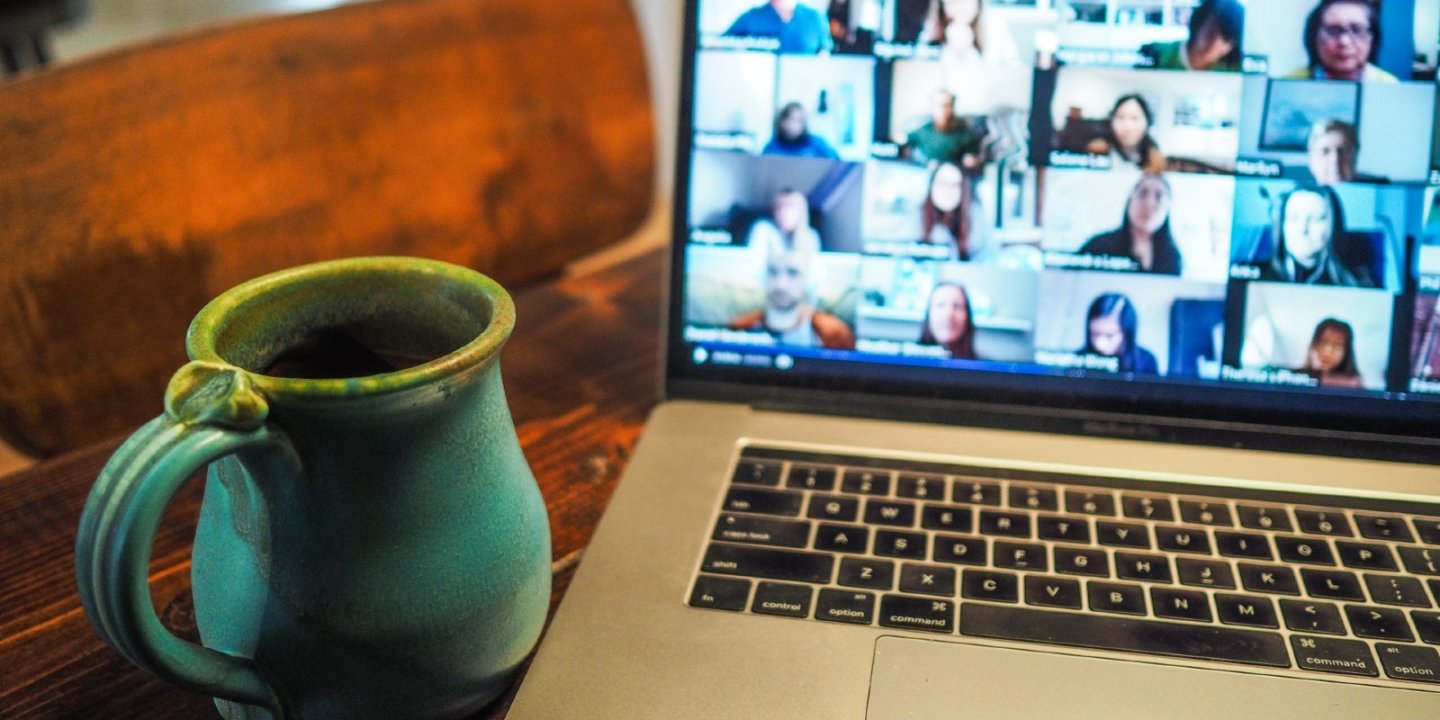
A different point of view
I was diagnosed during lockdown but I’ve traced my symptoms back to 2017.
The wellbeing sessions helped me realise that, having had MS all this time, my life has continued. So a diagnosis shouldn’t make a difference except that I’m now getting support. That can only be a good thing!
Part of that has been changing my internal wording. I've gone from ‘being diagnosed in 2020’ to ‘started getting support in 2020’. That has been down, in part, to the sessions.
Asking for help can be difficult but the group discussions helped me understand that it’s not me being awkward.
We shared our individual experiences of when we told our workplaces about our MS, for instance. It was great to hear how people’s workplaces are happy to make reasonable adjustments based on what they chose to share. That gave me some comfort that I’m not making a ‘fuss’.
Find out more about reasonable adjustments your employer must make
Community spirit
It’s like having a small community to help explore my diagnosis and to learn from others' experiences. In the past I had read a lot. But actually speaking to people in a similar position helped bring what I had read to life. It made MS more real and normalised it.
The group helped me feel I’m not alone in my experiences. I waited some time for an explanation for the weird things like the tingling in my cheek or that time I was unable to use my knife and fork on holiday (luckily it was pizza!). Symptoms which disappeared as quickly as they came on at the time.
One of the great things about the Wellbeing sessions is everyone had an understanding of MS. While family and friends can empathise they don’t always get some of the complexities. It’s nice to be able to talk without explaining.
It’s showed me that while my MS is unique to me there are similarities between us.
Discussing things as a group gives you suggestions about how to manage symptoms, and a chance to share how you manage yours.
We were all at different stages of our diagnosis but that only made discussion broader. We could all support each other and the more I talk about my MS the easier it gets to talk about.
The sessions have been really helpful and my advice to anyone thinking of signing up is to do it. And if you’re not sure definitely get in touch with the MS Society as they can help you find the right support for you.
Get support
If you live in Scotland, you can find support through our Scotland Wellbeing Hub.
We also offer a range of care and support services for people living anywhere in the UK.
